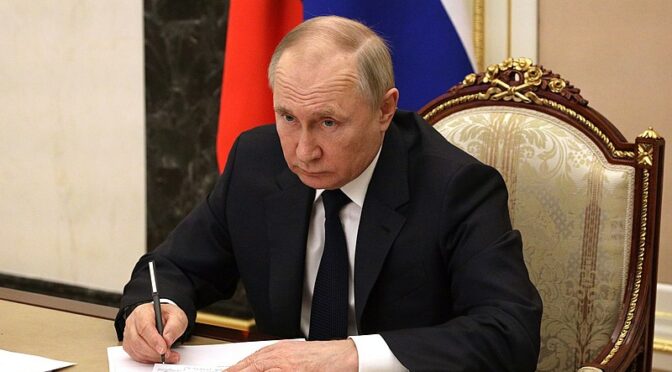Article published in The Daily Telegraph, 18 September 2022. © Richard Kemp
Some have predicted that Russia will disintegrate in the face of humiliation in Ukraine. Perhaps, but we are already beginning to see signs of the weakening of Moscow’s hold on its ‘near abroad’ – the former Soviet states that have remained under close Russian influence. Domination of Moscow’s erstwhile empire is vital for Putin’s rehabilitation of Russia as a great power, but his disastrous war in Ukraine may have fatally undermined it.
The conflict has inflicted economic damage on all of the former Soviet states, mostly dependent to one degree or another on Moscow. It has also affected their own security concerns in different ways: some emboldened by Russian setbacks, some fearful for their own independence, and some realising they may not be able to rely on hobbled Moscow for help when they need it.
Azerbaijan last week, for example, launched a deadly attack on Armenian towns outside Nagorno-Karabakh, testing Moscow’s appetite for intervention while on the back foot in Ukraine. Since brokering a cease-fire between the two sides in 2020, Russia has maintained a 2,000 strong peace-keeping force in the Nagorno-Karabakh region, now reportedly scaled-back to stoke the fighting in Ukraine.
Both Armenia and Azerbaijan have been looking increasingly to the West, including for mediation, a bitter pill for Moscow to swallow with its own regional influence diminished. Last month Armenian Prime Minister Nikol Pashinyan voiced unprecedented criticism of his Russian ally, questioning the effectiveness of the peacekeepers, and last week called for assistance that he knows Moscow is not in a position to deliver.
Armenia’s concern is twofold – first that Azerbaijan will continue to exploit Russian weakness and, second, that Moscow will pressure it to join the Union State of Russia and Belarus after emerging from the Ukraine war. Neighbouring Georgia, 20 per cent of whose territory has been occupied by Russia since the invasion in 2008, shares Armenia’s fear of Russian subjugation, which partially accounts for accusations of ‘benevolent neutrality’ towards Moscow, including sanctions busting. One of the most westward-looking of the former Soviet states, it is not hard to imagine Tbilisi’s stance shifting if Ukraine continues to expose the Kremlin’s weakness.
Even Kazakhstan, a close and long-term ally of Russia, has stayed neutral over the war, refusing to help Moscow evade sanctions and rejecting Russian demands to recognise independence for Donetsk and Luhansk. It has even offered to increase energy supplies to the EU and find a gas route that bypasses Russia.
Last month, Kazakhstan, along with the other central Asian states, Kyrgyzstan, Tajikistan, Turkmenistan and Uzbekistan, discussed diversifying trade routes to avoid Russia and explored the prospects of a regional security alliance among the five countries to fill an expected Russian power vacuum. As former Soviet states in Europe and the Caucasus look West, central Asian states look east to China, both for economic support and, increasingly, for security.
This instability risks Putin not only failing to achieve his grand plan of drawing former Soviet states deeper into Russia’s sphere of influence but also reducing his control over some that have been there for years. His goals are shared by the political elites in Moscow and, as they watch the gulf widening between their objectives and his ability to deliver them, they will surely be wondering whether it’s time to change horses. Putin cannot afford this humiliation to continue.
Image: Wikimedia Commons

